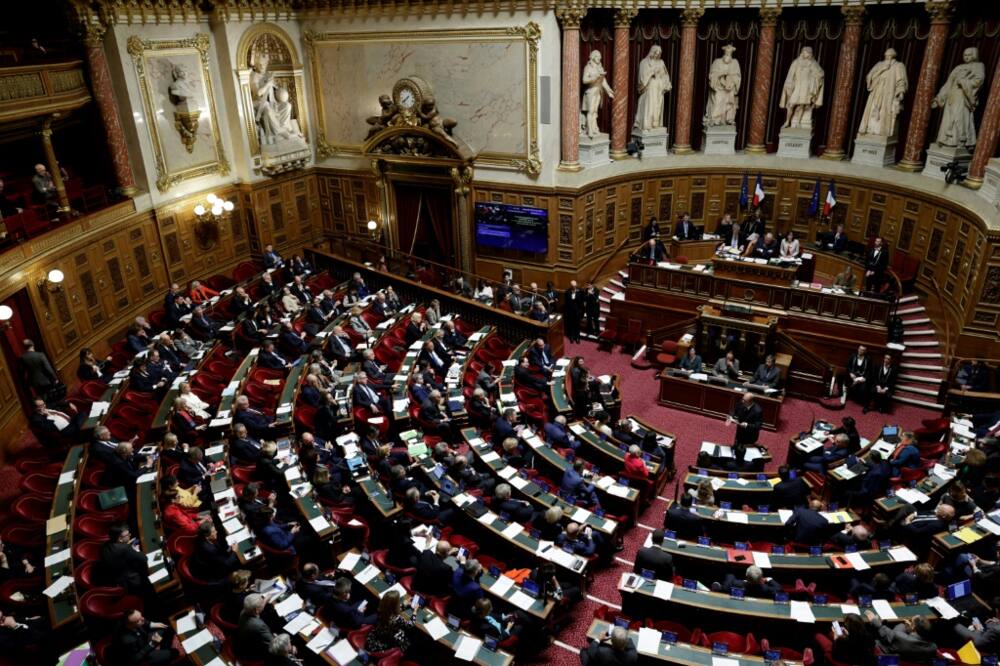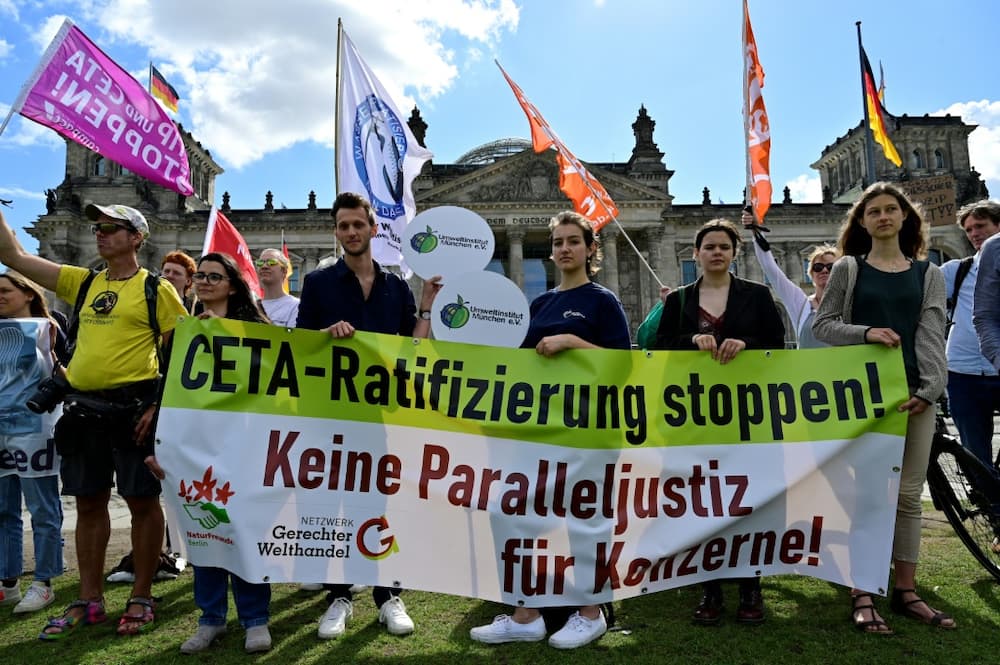EU-Canada trade deal stumbles in French Senate

Source: AFP
The French Senate on Thursday overwhelmingly voted against a free-trade agreement between the EU and Canada, dealing a stinging blow to the government of President Emmanuel Macron.
The no-vote in the upper house came after the president's left and right-wing opponents teamed up in an unusual alliance to torpedo the deal.
The Comprehensive Economic and Trade Agreement (CETA) has been in force provisionally since 2017, but requires ratification in all European Union member countries to take full effect.
Macron and his centrist parliamentary allies managed to get the deal approved in the National Assembly lower house in 2019 by a slim margin, but backing by the Senate upper house -- where they are in a clear minority -- is needed for ratification.
The French Communist party had placed the treaty on Thursday's Senate agenda, with the stated aim of getting it defeated with the help of the right-wing Republicans (LR).
Accusing the government of treating parliament "like a doormat", Communist senator Fabien Gay had announced "a political thunderclap".
PAY ATTENTION: Watch the hottest celebrity stories on our YouTube channel 'Briefly TV'. Subscribe now!
After scenes of tension rarely seen in the upper house, senators voted 211 against and 44 for the treaty and then confirmed the rejection with a second vote.
Foreign Trade Minister Franck Riester, who had already slammed the opposition's strategy as "an inacceptable manipulation", added after the vote that it had been motivated by electoral considerations ahead of European Parliament elections in June, seen as a key test for Macron.
'Damaging to our economy'
The Senate's non-ratification was "damaging to our economy and our agriculture", Riester said on X, formerly Twitter. The government, he said, would continue to back CETA. "The debate is not over," he said.

Source: AFP
Much opposition to the pact focuses on food, with Bruno Retailleau, LR's leader in the Senate, saying that "we need free-trade agreements, but not at the expense of our sovereignty, especially for food".
Like all EU trade deals, CETA was negotiated by the European Commission, but also needs approval from each EU member.
Although a setback for the government the no-vote does not in itself nullify the agreement.
Under EU rules, the rejection is only effective if the government officially notifies the EU, which Macron is not expected to do.
The government has not said how it will handle the situation, but one option is to take the treaty back to the National Assembly for a fresh debate and vote.
Communist MPs quickly announced that they want to put CETA back on the National Assembly's agenda as soon as May 30, hoping that the lower house will overturn its earlier approval and also vote against CETA.
France is the second country to have withheld ratification.
The parliament of the first, Cyprus, voted no because of disagreement over the labelling of Halloumi cheese. Cyprus has not notified the EU Commission of its no-vote and continues to apply the treaty.
While the French government defends CETA, there is also plenty of opposition, notably around food safety, with critics pointing to Canada's laxer approach to genetically-modified organisms, hormones, pesticides and herbicides, and lower standards on animal welfare compared to the EU.
There have been angry demonstrations in several EU countries against the deal, including by climate activists.
Criticism has also come from farmers and industrial sectors, notably over access to the Canadian market, and regulations.

Source: AFP
"Farming in central Canada is completely industrial and operates without any rules," said LR senator and professional farmer Laurent Duplomb.
Senators reported having received an unusual amount of attention from companies, associations, the government and the Canadian embassy all hoping to sway them.
The trade deal's backers say French exports to Canada increased by 33 percent between 2017 and 2023, while imports rose 35 percent, thanks to the agreement.
Wine and dairy producers are among the main beneficiaries, the government says.
PAY ATTENTION: Сheck out news that is picked exactly for YOU - click on “Recommended for you” and enjoy!
Source: AFP



